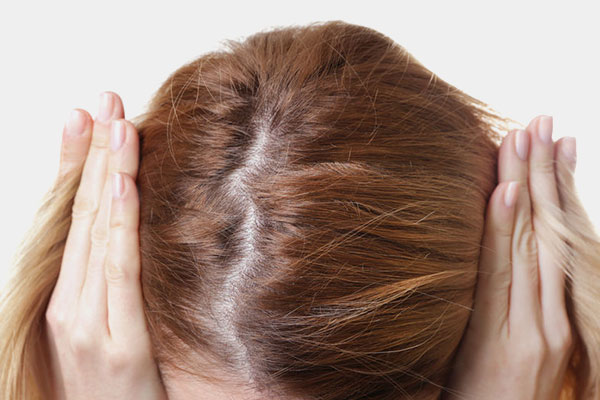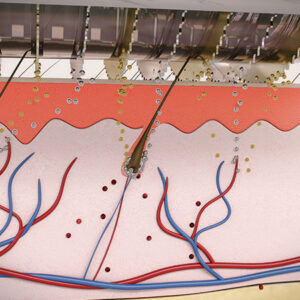Thinning hair in women is a common concern that can lead to emotional distress and decreased self-esteem. While many people associate hair loss predominantly with men, studies indicate that a significant number of women also experience this issue. Understanding the causes of thinning hair in women is crucial for developing effective treatment strategies. This article will delve into various factors contributing to hair thinning, explore potential treatments, and highlight innovative solutions like the Hairegen device.

The Hair Growth Cycle
Stages of Hair Growth
To comprehend why thinning occurs, it’s essential to first understand the hair growth cycle, which consists of three primary phases:
-
Anagen Phase: This is the active growth phase of hair, lasting anywhere from two to eight years. During this period, hair follicles are robust and produce healthy strands.
-
Catagen Phase: This transitional phase lasts about two to three weeks. Hair growth slows, and the follicle begins to shrink.
-
Telogen Phase: In this resting phase, which can last two to four months, hair is not actively growing and is eventually shed. At the end of this phase, the cycle restarts as new hair begins to grow.
Understanding these phases helps to contextualize the normal shedding of hair, which can range from 50 to 100 strands daily. However, when the balance between hair loss and regrowth is disrupted, it can lead to noticeable thinning.
Individual Variability
It’s important to note that hair loss is highly individualized. Factors such as genetics, age, and overall health play significant roles in how each person experiences hair thinning. Women may notice changes in hair density and texture, often leading to concerns about their appearance.
Genetic Factors
Hereditary Conditions
One of the most common causes of thinning hair in women is genetic predisposition. Female-pattern hair loss, also known as androgenetic alopecia, affects millions of women, particularly as they age. This condition is characterized by a gradual thinning at the crown and temples, often beginning in the 40s or 50s.
Hormonal Influences
Hormonal changes can significantly impact hair growth. Conditions like polycystic ovary syndrome (PCOS) can lead to hormonal imbalances that contribute to thinning hair. Additionally, hormonal fluctuations during menopause can exacerbate hair loss, as estrogen levels decline, leading to thinner, weaker hair.
Lifestyle Factors
Hair Care Practices
The way women care for their hair can also contribute to thinning. Overuse of harsh chemicals in hair treatments, such as dyes, perms, and relaxers, can damage hair follicles. Tight hairstyles, like ponytails or braids, can lead to traction alopecia, a form of hair loss caused by excessive pulling on the hair.
Nutritional Deficiencies
A balanced diet is essential for healthy hair. Deficiencies in key nutrients, such as iron, zinc, and vitamins A and D, can hinder hair growth. Women with restrictive diets or those experiencing significant weight loss may find their hair thinning as a result of inadequate nutrient intake.
Stress and Mental Health
Chronic stress can be a significant factor in hair loss. Stress triggers the release of hormones like cortisol, which can push hair follicles into the telogen phase prematurely. Conditions such as telogen effluvium, where hair sheds more than usual, can occur after stressful events, such as surgery or emotional trauma.
Medical Conditions
Thyroid Disorders
Thyroid imbalances, whether hypothyroidism or hyperthyroidism, can lead to hair thinning. The thyroid gland regulates metabolism and influences hair growth cycles. Women experiencing unexplained hair loss should consider consulting a healthcare provider to evaluate their thyroid function.
Autoimmune Disorders
Autoimmune diseases, such as alopecia areata, occur when the body’s immune system mistakenly attacks hair follicles, leading to sudden hair loss. This condition can result in patchy bald spots and may require medical intervention for effective management.
Other Health Conditions
Several other health issues can contribute to hair thinning, including anemia, which results from a deficiency of red blood cells, and certain skin conditions like psoriasis or eczema that affect the scalp. Identifying and addressing these underlying health problems is crucial for managing hair loss.
Medications and Treatments
Common Medications
Certain medications can have hair loss as a side effect. Drugs used for treating high blood pressure, depression, and cancer can impact hair growth. If hair thinning coincides with starting a new medication, it is advisable to consult a healthcare provider.
Over-the-Counter Treatments
Several over-the-counter treatments are available for women experiencing thinning hair. Minoxidil, commonly known by its brand name Rogaine, is FDA-approved for treating female-pattern hair loss. It promotes hair regrowth and can be effective when used consistently.
Prescription Options
For more severe cases of hair loss, healthcare providers may recommend prescription medications. Spironolactone, an anti-androgen medication, can be effective for women with hormonal imbalances. Other options include finasteride, though it is primarily prescribed for men.

Best selling hair growth products:
Innovative Solutions
The Hairegen Device
One of the emerging treatments for thinning hair in women is the Hairegen device. This innovative device utilizes low-level laser therapy (LLLT) to stimulate hair follicles and promote hair growth. The Hairegen device is designed for home use and offers a non-invasive option for women seeking to enhance their hair density.
Benefits of Hairegen
- Non-Invasive: Unlike surgical options, the Hairegen device is painless and can be used in the comfort of your home.
- Convenience: With regular use, the device can fit seamlessly into daily routines, making it easier for women to maintain their hair health.
- Proven Results: Clinical studies suggest that LLLT can lead to visible improvements in hair thickness and overall scalp health.
Emotional and Psychological Impact
Mental Health Considerations
Experiencing thinning hair can have profound emotional effects. Women may feel self-conscious about their appearance, leading to anxiety and depression. It is essential to acknowledge these feelings and seek support when needed.
Coping Strategies
Coping with hair loss involves both practical and emotional strategies. Women can benefit from joining support groups, consulting with mental health professionals, or exploring new hairstyles that can help them feel more confident.
Preventive Measures
Healthy Hair Care Practices
To mitigate the risk of thinning hair, women should adopt healthy hair care practices. This includes using gentle hair products, avoiding excessive heat styling, and minimizing chemical treatments. Regularly massaging the scalp can also promote blood circulation and enhance hair growth.
Nutritional Support
Ensuring a balanced diet rich in essential nutrients can help support hair health. Foods high in iron, zinc, and vitamins A, C, and D should be incorporated into daily meals. Consulting with a nutritionist can provide personalized dietary recommendations.
Managing Stress
Implementing stress-reduction techniques, such as mindfulness, yoga, or regular physical activity, can benefit overall health and potentially reduce hair loss. Finding healthy outlets for stress can help maintain hormonal balance and promote hair growth.
When to Seek Professional Help
Consulting a Dermatologist
If hair thinning becomes noticeable or persistent, it is crucial to consult a dermatologist. A professional evaluation can help identify the underlying causes and determine appropriate treatment options.
Diagnostic Tests
Healthcare providers may recommend various diagnostic tests to assess hair loss, including blood tests to check hormone levels, vitamin deficiencies, and thyroid function. These tests can provide valuable insights into the causes of thinning hair in women.
Conclusion
Thinning hair in women can arise from a multitude of factors, including genetics, lifestyle choices, medical conditions, and emotional stress. Understanding the causes of thinning hair in women is the first step toward effective treatment and management. By adopting healthy hair care practices, seeking appropriate medical advice, and exploring innovative solutions like the Hairegen device, women can take proactive steps to address their hair loss concerns. Remember, early intervention is key, and there is hope for regrowth and restoration.
This article provides a comprehensive overview of the causes of thinning hair in women, along with insights into treatments and coping strategies. By combining thorough research with original content, the article aims to serve as a valuable resource for those seeking information on this important topic.





